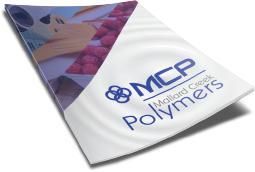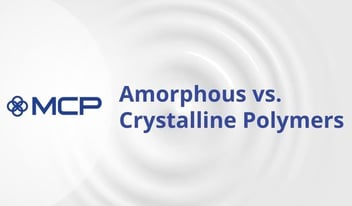
Resin Supported: The Superior Emulsion For Your Formulations
At Mallard Creek Polymers, we routinely work with our customers to recommend emulsions that will give their formulations a competitive edge, develop greater quality, or achieve cost efficiency. For those formulators looking for a competitive edge,..
At Mallard Creek Polymers, we routinely work with our customers to recommend emulsions that will give their formulations a competitive edge, develop greater quality, or achieve cost efficiency. For those formulators looking for a competitive edge, desirable qualities, and an emulsion that’s easy to work with in a variety of applications should look no further than resin supported emulsions as an alternative to latex.
Formulators looking for ways to give their coatings a competitive edge might take a look at the graphics arts industry. Printers like working with inks and coatings that use resin supported emulsion polymers rather than traditional latex emulsions. Resin supported emulsions are a unique subset of styrene-acrylic emulsion polymers. Formulators build an emulsion on an alkali soluble resin that results in a vehicle with a low minimum film forming temperature relative to the polymer’s glass transition temperature.
These advanced polymer resin formulations are easier to work with and give the end product a host of desirable qualities not otherwise achievable.
Eliminating Surfactants
In conventional, water-based emulsions, a surfactant is an essential part of the mix. Surfactants are substances that reduce surface tension between two liquids. In this context, surfactants are both hydrophilic and part hydrophobic, performing the dual roles of controlling polymer growth and preventing separation of the latex particles in the mix.
With resin supported emulsions, formulators will process the resin so that it can effectively replace the surfactant. They achieve this result by first solubilizing a hard styrene-acrylic with ammonia before adding it to the monomer. During polymerization, some of the resin grafts onto the backbone of the polymer, creating a core shell type of structure, while the rest of the resin stays in the aqueous phase. Formulators are able to control polymer growth and separation, as with a surfactant, but they can achieve additional attributes by using the resin, versus being limited to the performance characteristics of the surfactant.
Special Attributes of Resin Supported Emulsions
Resin supported emulsions achieve specific qualities with regard to molecular weight, glass transition temperature, and rheology. The acrylic resin has a lower molecular weight, (7,000 to 8.500 dalton,) and a higher glass transition temperature (Tg) – typically around 120 deg C – than the polymer. These attributes allow the emulsion to take on characteristics of each.
Additionally, rheology of resin supported emulsions is near-Newtonian, so there’s virtually no change in viscosity due to sheer. Also, the more resin that’s used, the higher the acid number, signifying superior polymer functionality.
Benefits in Use
Coatings made with resin supported emulsion polymers have advantages in both application ease and final product quality. Resin supported emulsions are widely used in the printing industry, as printers value the good ‘runnability’ and ‘re-wet’ performance of inks and overprint varnishes (OPVs). They achieve superior ink transfer from the roller, which reduces ink waste. The absence of thickening allows printers to achieve consistent performance with a uniform, repeatable application. Film formation takes place at a lower temperature than the Tg would suggest, while clean-up is easier as well, reducing press downtime and increasing capacity. Thus, resin supported polymers help printers increase revenue while cutting costs.
Resin supported polymers have yet another benefit, deep in the mix. As previously noted, while some of the resin bonds to the polymer, the rest remains in aqueous phase. As the formulation dries, the remainder blooms to the surface of the coating. Its high Tg delivers a hard, tack-free feel, resulting in a high-gloss finish. Coatings formulated with resin supported emulsion have a higher quality look and feel when they dry.
Industry Applications
While resin supported polymers are prevalent in printing and packaging, they certainly aren’t limited to these industry applications. The next obvious industry application for resin supported polymers extends to paints and coatings, as this industry prizes the same capabilities of achieving high gloss and quality.
With a variety of market applications, resin supported polymers can help formulators achieve certain performance attributes that increase quality and finish, as well as eliminate waste and the need for surfactants. At Mallard Creek Polymers, we can help you find the resin supported emulsion that’s right for your product needs. Contact us today for a consultation.

 Construction
Construction
 Nonwovens
Nonwovens
 Adhesives
Adhesives
 Textiles
Textiles
 Printing & Packaging
Printing & Packaging
 Paper
Paper
 Paints & Coatings
Paints & Coatings




